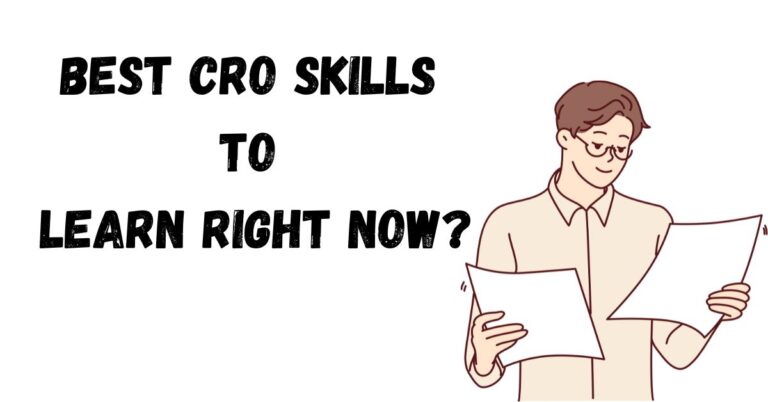7 IMPORTANT SEO Complementary Skills to Learn Right Now
Ah, yes. The good old feeling of things never being enough. It applies to everything in life, especially work.
If you’re currently contemplating why things aren’t moving the way they should, chances are you’re worried you’re being left behind.
Because of this, you frantically type away, searching for the skills you should learn as an SEO to boost you further than where you currently are.
We understand your concern, and that’s why we’ve made this article for you. Here, you’ll learn all of the complementary skills that you can apply to your current SEO skills, boosting you to new heights.
Why Learn Complementary Skills as an SEO?
SEOs should think outside the box. Most of the skills commonly emphasized within the SEO industry are limited to tasks like keyword research, link building, and other SEO-centric activities.
Being able to expand and explore various skills that aren’t strictly tied to SEO can give you a broader outlook and perspective on marketing as a whole.
What are the Best Complementary Skills to Learn If You’re an SEO?
With that said, knowing how to write content, perform basic web development, and analyze data are complementary skills that you can add to your current skillset as an SEO.
Read further below if you want to delve deeper into this topic.
1. Writing
SEO isn’t just about crunching numbers. The majority of the work comes down to writing, and if you’re an SEO who knows how to create effective and compelling content that your readers would want to read, then your value as a professional would increase significantly. Also, being able to write not only makes you a better and more effective SEO, but it also opens up a whole new door for you as a marketer that you can branch out from.
Where to Start
- Grammarly Blog: Offers tips and tools to improve writing clarity and grammar, essential for crafting compelling SEO content.
- Copyblogger: Provides courses and articles focused on writing high-quality content that engages and converts.
- The Purdue OWL (Online Writing Lab): A comprehensive resource for writing tips, grammar rules, and style guides.
2. Web Development
Apart from knowing how to write, you should also opt to learn how to fix issues on your site or the client’s site. HTML, CSS, and JavaScript are things that would benefit you if you know a thing or two about them. You don’t need to become a coding whiz, but knowing basic development work is definitely helpful.
Where to Start
- Codecademy: Offers interactive courses on HTML, CSS, JavaScript, and more, tailored for beginners.
- Mozilla Developer Network (MDN): Provides detailed documentation and learning pathways for web technologies.
- freeCodeCamp: Access free coding lessons and projects in web development to build practical skills.
3. Selling
Selling is one of those skills that won’t show up on your portfolio at first glance, but being able to cultivate this skill and have it in your arsenal can do wonders for you. Want to push an idea to your client and they’re not totally on board with it? That’s a good opportunity to sell your idea. Are your customers unsure if your product is for them? Sell them the product in a way that can help them. Selling comes in different facets of life, and knowing how to do this at every single opportunity can definitely be helpful for you, not just in SEO.
Where to Start
- HubSpot Academy: Offers free sales training courses that teach you how to close more deals and improve selling techniques.
- LinkedIn Learning: Features courses on sales strategies and techniques by industry experts.
- Sales Hacker: Provides resources and community support to learn modern sales techniques and tools.
4. Data Analysis
Data analysis might not be the first skill you list on your resume, but mastering it can transform your SEO career. Not up to speed with SQL yet? No worries, just diving into the basics can massively increase your impact within your team. Think of Excel as your best friend for sifting through data, organizing keywords, and whipping up insightful reports that convince management of your strategies’ effectiveness.
Where to Start
- Khan Academy: Offers courses on statistics and probability, foundational for understanding data analysis.
- Coursera: Provides various courses on data science and data analysis techniques from universities and colleges.
- Google Analytics Academy: Learn to measure web traffic and improve your SEO strategies with Google’s own tools.
5. Communication
Effective communication is essential for SEO professionals. It helps bridge the gap between technical details and stakeholder understanding, ensuring SEO strategies are clear and actionable. Good communication skills improve project management and client relationships by making complex SEO concepts accessible to non-experts. This not only helps in implementing strategies effectively but also boosts collaboration, problem-solving, and decision-making across teams. Enhancing your communication abilities can significantly impact the success of your SEO initiatives.
Where to Start
- Toastmasters International: Helps improve public speaking and communication skills through local clubs worldwide.
- MindTools: Offers resources to enhance communication skills essential for effective teamwork and client interactions.
- Udemy: Features various courses on business communication skills, from email writing to effective presentations.
6. UX (User Experience)
Understanding UX is needed for SEO professionals because it directly impacts how users interact with a website. Good UX leads to longer visit durations and lower bounce rates, which are positive signals to search engines. SEO experts who can incorporate UX principles into their work help ensure that a site not only ranks well but also provides a satisfying user journey.
Where to Start
- Interaction Design Foundation: Offers coursework in UX design that ranges from beginners to advanced levels.
- Nielsen Norman Group: Provides research-based advice, reports, and seminars on web usability and UX best practices.
- UX Design Institute: Offers a professional diploma in UX design that covers in-depth concepts and practical skills.
7. Graphic Design
Graphic design skills can significantly boost SEO by enhancing site aesthetics and user engagement, crucial for search rankings. SEOs proficient in graphic design can produce compelling visuals like infographics that attract traffic and backlinks. They can also seamlessly integrate SEO with web design, ensuring the site is optimized from the start. This skill is especially valuable for freelancers and small teams, enabling quicker, direct modifications without depending on a design team.
Where to Start
- Adobe: Learn graphic design using Adobe’s suite of tools with tutorials directly from the source.
- Canva Design School: Offers free tutorials and resources to learn graphic design with a focus on using Canva.
- Skillshare: Features a variety of courses on graphic design covering everything from basics to advanced techniques.
These skills, when partnered with SEO, can help propel you to better opportunities.
FAQs
Before we end, let’s tackle some questions you might have about this topic of ‘SEO complementary skills.
What are the key elements of SEO-friendly writing that marketers should know?
SEO-friendly writing involves more than just keyword insertion. It requires an understanding of user intent, the ability to create engaging and informative content, and the skill to structure articles so they are easy to read by both humans and search engines. Important elements include using appropriate headings, meta descriptions, and alt text for images to improve accessibility and relevance.
What types of data analysis are most valuable for SEO strategies?
For SEO, data analysis should focus on areas like search trend analysis, keyword performance, and competitive analysis. Tools like Google Analytics and Google Search Console provide insights into website traffic patterns, user behavior, and conversion metrics, which are crucial for measuring the effectiveness of SEO strategies and making data-driven decisions.
What writing techniques can improve the readability and SEO of web content?
Techniques such as using active voice, short sentences, and clear, concise language can significantly improve readability. Incorporating bullet points, numbered lists, and subheadings also helps break down information and makes web pages easier for search engines to scan and for users to read. Additionally, ensuring that content answers common questions related to your keywords can boost SEO by aligning with search intent.
How does learning about conversion rate optimization (CRO) complement SEO skills?
While SEO focuses on driving traffic, CRO aims to convert that traffic into leads and sales. By understanding CRO, SEOs can optimize pages not just for traffic, but also for conversions, making the traffic that comes to the site more valuable and likely to achieve business goals.
What role does data visualization play in presenting SEO data and analytics?
Data visualization plays a key role in making complex data accessible and understandable to clients or non-technical team members. Using charts, graphs, and infographics to represent SEO performance metrics can help illustrate trends, patterns, and results clearly. This not only aids in reporting but also in strategic decision-making, as visual data can highlight successes and areas needing improvement more effectively.
Conclusion
Juan Remote Work is a platform that helps all types of remote workers upskill and do better.
If you’re looking for relevant topics that can help you improve your SEO strategies, then check out our blog. We discuss subjects such as ‘What’s the Best Digital Marketing Project to Learn Right Now?’, ‘Credit Card Tips for Newbies‘, and more.
To summarize, these complementary skills are meant to expand your toolkit, not just as an SEO, but also as an overall marketing professional. It’s up to you whether or not to move forward with learning each one, but take it from us – it’s well worth it if you do.
If you have any other questions, please don’t hesitate to comment down below. As always, we hope you have a good day.






![How to Write a Proposal on Upwork That Works [10 Easy Ways]](https://www.juanremotework.com/wp-content/uploads/2024/07/a-woman-thats-looking-through-her-laptop-768x402.jpg)
